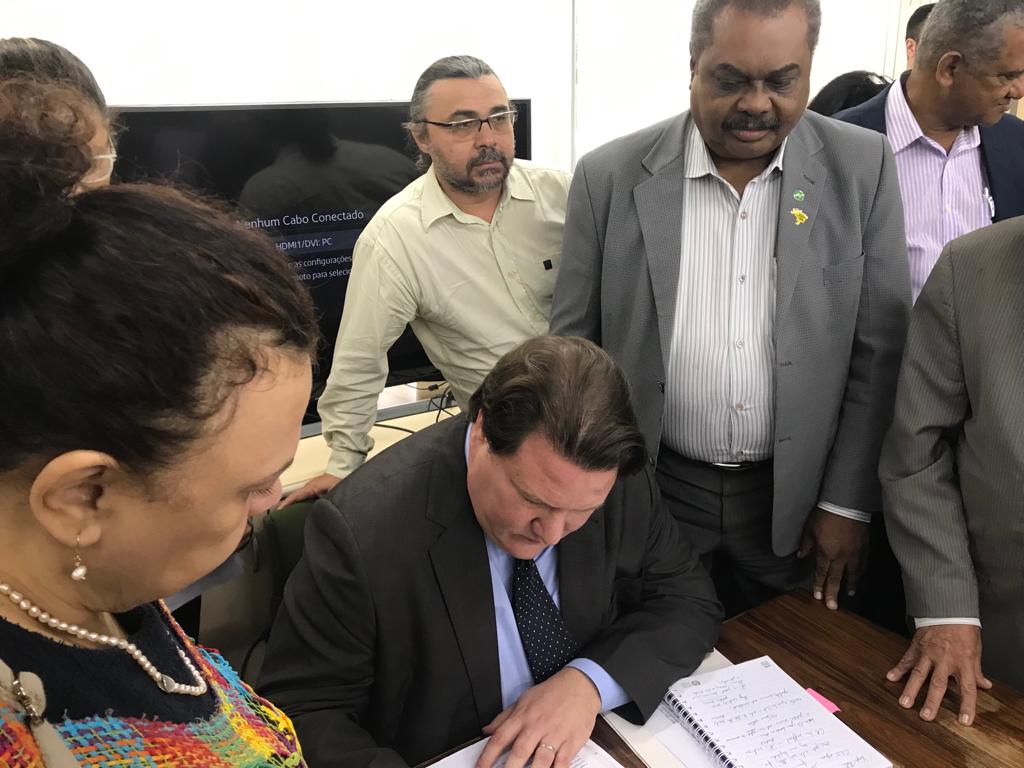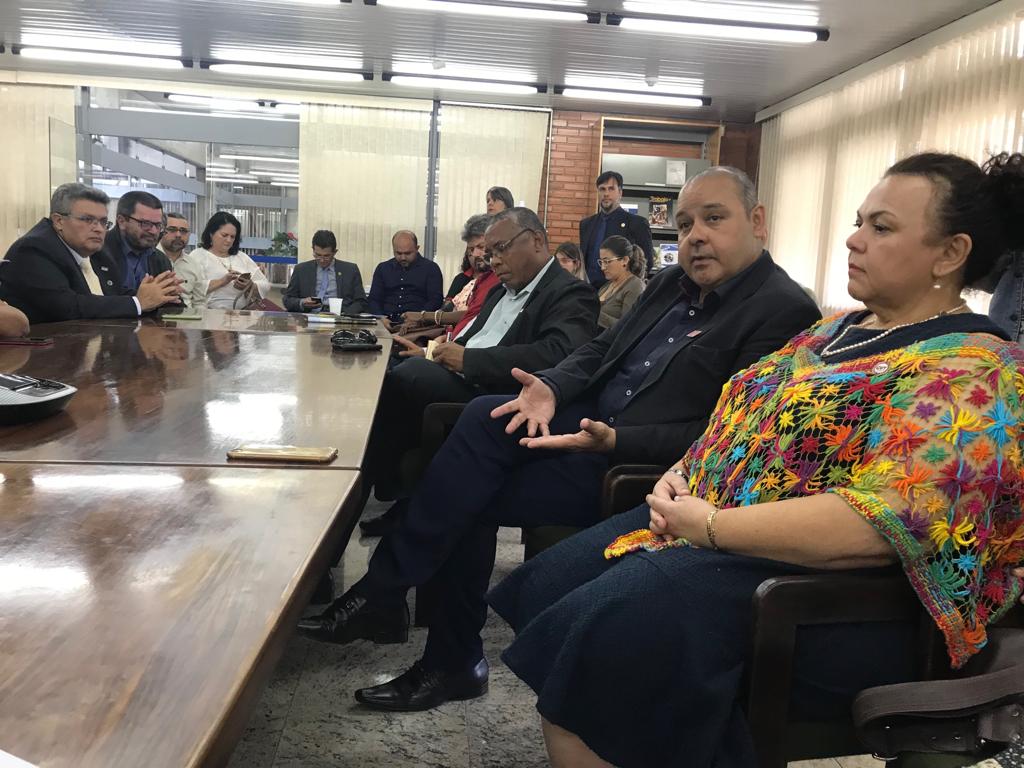Brazil denounced at the International Labor Organization for violation of trade union rights

National trade union centrals and federations joined with the Brazilian regional office of global union federation Public Services International (PSI) to file a complaint against the Brazilian government at the Brazilian office of the International Labor Organization (ILO) on Wednesday, December 12. The entities accuse the Brazilian State of violating ILO Convention 151 (Labour Relations - Public Service Convention, 1978) which guarantees, among other things, the right to collective bargaining in the public sector. This right is systematically violated despite Brazil’s National Congress having ratified Convention 151 in 2010.
The complaint was received by ILO country director Martin Hahn in Brasilia (DF). Hahn committed to bring the complaint to the ILO Committee on Freedom of Association, to follow up and to maintain a dialogue with trade unions.

PSI was represented by the Brazilian sub-regional secretary, Denise Motta Dau, and by Juneia Martins Batista and João Domingos Gomes dos Santos, both of whom are members of PSI´s World Executive Board. In addition to PSI and eight of its affiliated organizations, the complaint was signed by eight national trade union centrals including:
Central Única dos Trabalhadores (CUT)
Nova Central Sindical dos Trabalhadores (NCST)
União Geral dos Trabalhadores (UGT)
Central dos Sindicatos Brasileiros (CSB)
Intersindical
Central dos Trabalhadores e Trabalhadoras do Brasil (CTB)
Central Sindical e Popular (CSP-CONLUTAS)
Força Sindical
PSI affiliates that signed the complaint include:
Confederação dos Trabalhadores no Serviço Público Federal (CONDSEF)
Confederação Nacional dos Trabalhadores em Seguridade Social da CUT (CNTSS)
Federação de Sindicatos dos Trabalhadores em Universidades Brasileiras (FASUBRA Sindical)
Federação Nacional dos Urbanitários (FNU)
Federação Nacional dos Trabalhadores do Poder Judiciário nos Estados (FENAJUD)
Confederação dos Trabalhadores Municipais (CONFETAM)
Confederação dos Servidores Públicos do Brasil (CSPB)
Sindicato dos Servidores de Ciência, Tecnologia, Produção e Inovação (ASFOC - FIOCRUZ-SN)
"We don’t want to file a complaint and leave. We want a return to this complaint and to those that were filed earlier, and to know what the ILO will do about the criminalization of the trade union movement in Brazil. We expect the agency to play a mediating role", says Denise Motta Dau.
 According to PSI´s Brazilian sub-regional secretary, the confederations, federations and other entities affiliated to PSI prioritized this initiative and participated in the preparation and filing of the complaint:
According to PSI´s Brazilian sub-regional secretary, the confederations, federations and other entities affiliated to PSI prioritized this initiative and participated in the preparation and filing of the complaint:
"They felt well represented. It is worth mentioning that over the last period these organizations have participated in the important debates and campaigns that ISP has taken up in Brazil including the campaign for Tax Justice and campaigns to bring services back into the public sector. "
In addition, Dau noted that the role of PSI in proposing and elaborating this formal complaint was highly valued in the speeches of the union representatives that participated in the signing ceremony:
"The eight trade union centrals all praised the initiative of denouncing the ILO this year, especially since Convention 151 is not just about collective bargaining, but also about freedom of association. Therefore, they said that 2019 will require a lot of unity, articulation, planning and joint work. This very important initiative is added to the denunciations made during the International Labor Conference between May and June of this year for violations of trade union rights, particularly related to the labor reforms approved by the Temer government and the proposed pension reform”, she said.
Despite having ratified Convention 151, Brazil has not applied it
"In the past the state has adopted concrete measures aimed at promoting collective bargaining, regardless of their effectiveness (...) What we have nowadays, however, is an institutional articulation to restrict freedom of association in the public sector, whether by the restrictions on the exercise of the right to strike, or by the limitation to collective bargaining that culminated in the veto of PL 3.831 / 2015."

